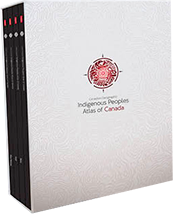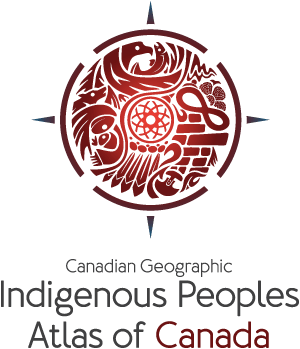Inuvialuit Settlement Region
Life in the North has changed a great deal and is changing still, but Inuvialuit values remain the same. These values are at the foundation of the cultural resiliency that has allowed people to survive the turbulence of the past few centuries and maintain their Inuvialuit identity and strengthen their communities.
The Inuvialuit Settlement Region is the most western of the four Inuit homelands in Canada that make up Inuit Nunangat. The Inuvialuit Regional Corporation, which was established in 1984 to manage the settlement outlined in the Inuvialuit Final Agreement, represents the collective Inuvialuit interests in dealings with governments and the world at large. Its goal is to continually improve the economic, social and cultural well-being of the Inuvialuit through implementation of the IFA and by all other available means. Inuvialuit beneficiaries directly control the IRC and its subsidiaries by electing directors from each of the region’s six communities.
In the IFA, Inuvialuit agreed to give up their exclusive use of their ancestral lands in exchange for certain other guaranteed rights from the federal government. These rights came in three forms: land, wildlife management and money.
As in the past, today Inuvialuit draw strength from their cultural traditions and from their ties to the Land. Although many Inuvialuit work in the communities, the pull of the Land is always strong. “I’m going to the bush” and “I’m going out on the Land” are commonly heard phrases. Bush, fish and whaling camps are scattered across Victoria Island, Banks Island and the Beaufort Delta region. Some of these are close to the communities to provide a quick weekend getaway by snowmobile, boat or ATV. Others are located farther away and are used for extended visits.
Inuvialuit have a high regard for certain characteristics and for certain types of individuals. They value curiosity, resourcefulness, patience, kindness and ability.
Inuvialuit have a high regard for certain characteristics and for certain types of individuals. They value curiosity, resourcefulness, patience, kindness and ability. They appreciate individuals who are successful at whatever they do, who are responsible, who keep their word and who are modest. These are attitudes that have not changed despite changes in everything else around them.
Environmental knowledge and survival skills continue to be important elements of modern Inuvialuit culture. As a large part of their diet is from the harvesting of local fish and wildlife, Inuvialuit look forward to the changing seasons. Geese and muskox are hunted in the spring and fall, whaling and fishing take place in the summer, and caribou hunting occurs in the fall and winter.
The long summer days provide ample opportunities for Inuvialuit to prepare for the winter. Communities appear deserted when residents move out to their whaling and fishing camps. Inuvialuit negotiated the first modern comprehensive land claims agreement in Northwest Territories. When the Inuvialuit Final Agreement was signed in 1984, self-government had not yet been recognized as an inherent right by the federal government. It was not until the Inherent Right Policy was introduced in 1995 that Inuvialuit had the opportunity to engage in self-government negotiations with the federal government.

In 1996, IRC and a Gwich’in Tribal Council began jointly negotiating the Gwich’in and Inuvialuit self-government agreement with the governments of Canada and the Northwest Territories. In 2003, an agreement-in-principle was reached. A final agreement could not be reached, however, and in 2005, IRC and the Gwich’in Tribal Council agreed to close the Beaufort-Delta self-government office.
In 2006, the IRC, on behalf of Inuvialuit, began to negotiate a new self-government agreement with the federal and territorial governments. A process and schedule agreement, which outlines the negotiators’ work plan and timeline, was signed by all three parties by May 2007. This was the first step in the journey to conclude a self-government agreement for the IRC. In July 2015, the negotiations reached a significant milestone when the three parties (IRC, federal government and Northwest Territories government) signed a self-government agreement-in-principle. The parties have now begun negotiating the final agreement, financial agreements and implementation plan. Inuvialuit leaders, Elders and youth are unanimous in recognizing that building on the traditions of the past is essential for success today and in the future.


Order now
from Amazon.ca or Chapters.Indigo.ca or contact your favourite bookseller or educational wholesaler




